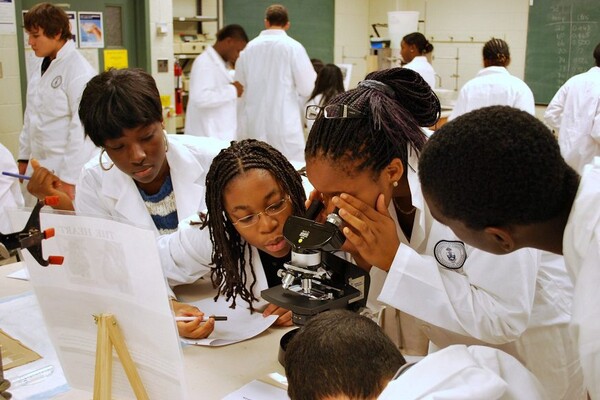Mobile Menu
- Education
- Research
-
Students
- High School Outreach
- Undergraduate & Beyond: Community of Support
- Current Students
- Faculty & Staff
- Alumni
- News & Events
- Giving
- About

In May, Temerty Medicine held our annual Education Achievement Celebration at Hart House, which is a marvellous occasion to recognize our faculty members' outstanding teaching and educational development. I had the honour of delivering the C. I. Whiteside Education Achievement Keynote Address, which allowed me to raise an issue I think we – students, faculty, staff, and alumni – need to spend more time discussing and addressing: climate change.
It is a significant and daunting challenge. And, especially after two years of dealing with a global pandemic, tackling yet another worldwide challenge can seem overwhelming. However, we regularly confront “co-morbidities” when delivering care. In our work, we must be able to address multiple problems simultaneously. And we do so as part of a team, so the burden doesn't fall on any one person. We also recognize that these challenges do not have quick fixes. It will take an enduring commitment by each of us and others to address these profound tests.
However, the scope of climate change and its impacts are evident and demand our attention. In April of this year, the World Health Organization issued an urgent call for accelerated action by leaders and all people to preserve and protect health and mitigate the climate crisis. The WHO calls climate change “the single biggest health threat facing humanity.” They note that 99 per cent of people breathe unhealthy air, mainly resulting from the burning of fossil fuels. A heating world sees mosquitos spread diseases further and faster than ever before. And extreme weather events, biodiversity loss, land degradation, and water scarcity displaces people and affects their health.
These are just a few of the many challenges climate change presents. The WHO estimates that between 2030 and 2050, climate change will cause an additional 250,000 deaths annually. And we know that climate change will impact those individuals and communities who are already the most vulnerable, including the poor, the elderly, young children, and those in developing countries without the resilient infrastructure to support adaptation.
Also in April, the Intergovernmental Panel on Climate Change said that climate change emissions must peak by 2025 for the world to have a chance of meeting the Paris Agreement target. As a reminder, the Paris goal was to keep global temperature from exceeding 1.5 degrees Celsius above pre-industrial levels, which is considered the upper limit to avoid the worst fallout from climate change. The Earth is now about 1.1 degrees Celsius warmer than in the 1800s. However, based on the current path of carbon dioxide emissions, temperature could increase by as much as 4.4 degrees Celsius by the end of the century.
In May, the World Meteorological Organization – another body of the United Nations – issued their annual State of the Global Climate report. They found that four key climate change indicators – greenhouse gas concentrations, sea-level rise, ocean heat and ocean acidification – set new records in 2021. This is yet another clear sign that human activities are causing planetary-scale changes on land, in the ocean, and in the atmosphere.
In short: the need is urgent, the stakes are high, and the time we have left to act is limited.
The good news is that we are capable of doing this work. We are educators and know how to develop and deliver essential lessons. We are researchers who create new knowledge, develop new practices, and improve how we work as part of professional teams. So, we can rise to this occasion, just as we have before.
Regardless of their area of study, every one of our graduates needs to know this. And that means our faculty and instructors – as well as our alumni – need to understand it too. We all need to appreciate how climate change touches all aspects of delivering care and how we conduct research. We are passed the point where climate change can be considered a special interest. It's a foundational lesson we all must learn.
As I told the assembled guests at the Education Achievement Celebration, I can describe the problem and point to examples that we can learn from and seek to emulate. Still, I alone can’t tell you what precisely we should do about it. Instead, it is a challenge I want to put before our entire community to help solve. As we have shown before, when considerable global challenges have arrived on our doorstep, we have always been ready and able to respond. I think it should be no different when it comes to climate change. So, I ask you all to consider what actions will you take. How might you change what you teach and how you teach to address climate change? How will climate change inform your research? And how can you contribute to a greater overall effort by Temerty Medicine to address this pressing global problem?
The mission of Temerty Medicine states that, “Our learners, graduates, faculty, staff and partners will be an unparalleled force for new knowledge, better health and equity.” How can we achieve that mission if we’re not addressing climate change? For that reason, I anticipate climate change will soon be a significant priority for our Faculty. And I want to invite you to help articulate that future. We won’t be able to solve climate change through one or two responses. We will need a variety of strategies. But, at the same time, we need to identify where we can have the most significant impact and where we might be able to solve part of the problem that is going under-explored, if not entirely ignored.
Today is the start of a more extended conversation, and I welcome your feedback. If you have suggestions to share, please send me an email with your ideas.
Trevor Young
Dean, Temerty Faculty of Medicine
Vice Provost, Relations with Health Care Institutions

